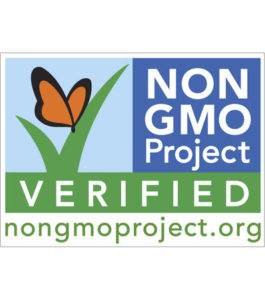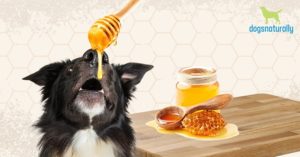GMO stands for Genetically Modified Organisms and they’re in the news a lot these days. And there are many different opinions about whether they’re safe or not.
There’s a lot of controversy about GMO foods. Some scientists claim that eating them is perfectly fine. But the truth? The companies that create GMOs (and stand to profit from their sale) are the ones backing the studies that say GMOs are safe.
A lot of independent scientists don’t believe GMOs are safe. Even though the US and Canadian governments have approved GMOs, a lot of other countries ban them. Many countries have banned the growing of GMO crops, including many in the European Union, Latin America, the Middle East and Africa. Other countries have restrictions on GMOs as well as labeling requirements.
And unless you’re taking conscious steps to avoid GMOs in your dog’s food, chances are he’s eating them, even if you’re feeding a homemade raw diet.
Keep reading to find out more about the safety of GMO foods and why they’re probably not a good thing.
What are GMOs?
Genetically modified organisms (or genetically engineered – it’s the same thing) are created when genes from the DNA of one species are extracted and artificially forced into the genes of another plant or animal.
Experts in favor of GMOs claim this is the same as cross breeding that’s been used for centuries, but it’s not.
Cross Breeding Vs Genetic Modification
Before we even get to cross breeding, let’s mention cross-pollination. That’s a completely natural process that happens when pollen is carried by the wind, insects or even water, and fertilizes another plant. The plants may be the same or sometimes different species.
Cross-breeding takes the natural process another step, with human intervention. Plant breeders choose specific “parent” plants for certain traits, and transfer the pollen to another plant to create offspring with attributes of both parents. These are often plants that couldn’t have crossed naturally – maybe from different regions or with different disease resistance traits. Cross-breeding is still a much more natural process than genetic modification.
In genetic modification, scientists take a single gene (or a small set of genes) and transfer it into a new genetic background to give the plant a completely new trait.
It sounds like it might be a good thing, but in practice, genetic modification is an artificial process that can affect foods’ nutritional values as well as their toxic and allergic effects. GM plants are often changed to be insect resistant, virus resistant, or herbicide tolerant, so there’s also an environmental impact.
Where Are GMOs?
Genetically modified crops include corn, soy, beets, canola, rice, potatoes, tomatoes, peas and alfalfa. You’ll recognize these as ingredients that are often in commercial pet foods. Experts say 70% of processed foods for humans contain GMO ingredients.
So, unless you’re feeding certified organic foods you can assume there are GMOs in your dog food. Even if the listed ingredients aren’t GMO, the animals used for the food’s meat ingredients probably ate GMO feed. And if you buy food at a grocery store to make your own raw dog food, the meat animal probably ate GMO ingredients too.
GMO Health Risks
There are significant health risks in eating GMO foods and quite a few studies have reported damage to organs.
- A 2009 safety study by Dona et al found that GM foods can cause hepatic, pancreatic, renal, and reproductive effects and may alter hematological, biochemical, and immunologic parameters (1).
- A study by de Vendemois et al compared the effects of feeding three different types of GMO corn to rats for just 90 days (2). They found toxicity primarily in the liver and kidneys. They also noted side effects in the heart, adrenal glands, spleen and blood cells.
- A 2-year feeding trial in 2012 reported that rats fed on a diet containing NK603 Roundup tolerant GM corn or given water containing Roundup developed cancers faster and died earlier than rats fed on a standard diet (3). Read more about glyphosate in pet foods below.
- Several studies have shown that genetic modification can alter gut bacteria and how they behave in the digestive tract.
- The insecticide Bt (Bacillus thuringiensis) in GM corn has been shown to damage kidney cells and can cause leaky gut syndrome in infants.
- Also, because the blood-brain barrier is not developed in newborns, toxins can enter the brain and cause serious cognitive problems. Some practitioners believe this is the mechanism for autism.
Health Issues From GMOs
There are many more studies, but in summary, GMO foods have been shown to cause:
- Liver damage
- Kidney damage
- Damage to other internal organs such as the pancreas and reproductive organs
- Changes in gut bacteria leading to leaky gut and immune system issues.
- Endocrine disruption
- Immune system damage
- Digestive disorders
- Skin and food allergies
- Cancer
- Cognitive issues
- Autism (translating to behavior issues in dogs)
Common GMO Foods
An estimated 70% of processed foods contain GMO plants. It’s not surprising when you look at some of the top GMO crops.
The crops highlighted below are in many commercial pet foods. Even if you don’t see them on the label, GMOs are almost certainly in the meat that’s in most pet foods. That’s because a big percentage of these crops are in animal feeds eaten by cows, pigs, sheep, goats, poultry, rabbits and even fish. So if you’re not buying organic, GMOs are almost certainly not just in your dog’s food but also in your own meat, fish and dairy products.
- Corn is the #1 US crop. 88% of US corn crops are genetically modified.
- Soy is another huge US crop and 94% is GM. You can find soy on ingredient lists under many different names: lecithin, hydrolyzed protein, monosodium glutamate (MSG), vitamin E, tocopherols. Many products with vegetable, plant or bean in the name (plus tofu, tempeh and textured vegetable protein) are all soy based.
- Canola: about 90% of US canola is genetically modified. Canola (also called rapeseed) is everywhere: it’s used in cooking as well as biofuels.
- Cottonseed may sound like something that couldn’t be in pet food, but cottonseeds are the source of many vegetable oils and they’re in animal feeds. 94% of cotton grown in the US is genetically modified.
- Alfalfa is the fourth largest crop grown in the US and cows eat it. So it’s in our meat, milk, cream, yogurt and butter. There aren’t any figures for the percentage of GMO alfalfa crops because GMO alfalfa has (literally) gone wild.
A USDA study found that it’s growing on roadsides and other places it shouldn’t be. It’s a perennial crop so when seeds blow off trucks or are pollinated by bees, it spreads fast and comes up year after year. It’s a huge problem because it’s likely that organic alfalfa crops are also contaminated with GMO seeds. So you really can’t trust alfalfa.
- Beets: you’ll often see beet pulp on pet food labels and 95% of US beet crops are genetically modified. 57% of sugar sold in the US comes from beets.
- And watch out for zucchini, yellow summer squash and papaya: these are also major GMO crops!
GMO Labeling
Congress passed a 2018 bill requiring GMO labeling that take effect in January 2022. But the legislation has some major flaws:
- Creating a federal law has overridden certain states (such as Vermont) that had stricter GMO labeling laws.
- Producers don’t have to list GMO ingredients in plain English on the packaging, but can provide this information via a QR tag that you have to scan with a smartphone. That’s not very convenient for the average shopper. More than 100 million Americans don’t own smartphones.
- According to the FDA, the definition of GMOs in the bill is written very narrowly and gives GM ingredients many loopholes. Many items are exempt from labeling and this means that many GMO foods can escape the requirements.
So, what’s a dog owner to do?
How To Avoid GMOs For Your Dog
One useful tool is the Non GMO Project. Their website‘s Product Verification Program is North America’s only third-party verification for non-GMO foods and products. Because they test for GMO contamination, it’s even stricter than organic certification. Here’s their page listing non-GMO pet products. They also list meat, fish and egg producers that are verified as non-GMO, as well as a list of participating retailers.
You can also look for the Non-GMO Project seal on qualifying products.

Glyphosate In Pet Foods
There’s one more thing to be aware of when it comes to GMOs in dog food. One major concern with GMO crops is the use of glyphosate (Roundup) in growing and harvesting these foods. Glyphosate is a widely used herbicide that a growing number of studies show is an endocrine disruptor, kills beneficial gut bacteria and damages DNA.
HRI Labs has tested many pet foods for glyphosate content. Testing shows …
- Raw dog foods have very low levels of glyphosate – up to 5 parts per billion (ppb).
- Canned and freeze-dried foods are 17 ppb.
- But conventional kibble contains huge levels of glyphosate. It ranges from 200 ppb to 660 ppb (organic products are likely lower). That’s more than 130 times the levels in raw!
So If you feed your dog a kibble diet that’s not 100% organic, it’ll be very high in glyphosate. Glyphosate in raw diets is much, much lower. This is even true of raw diets containing factory farmed meats. It wasn’t just the organically or pastured raised or fully grass fed meats. Freeze-dried and canned foods are second lowest in glyphosate content.
Avoiding GMOs adds expense and complication to feeding your dog (and your family), but are the risks worth it?
References
- Dona A, Arvanitoyannis IS. Health risks of genetically modified foods. Crit Rev Food Sci Nutr. 2009 Feb;49(2):164-75.
- de Vendômois JS, Roullier F, Cellier D, Séralini GE. A comparison of the effects of three GM corn varieties on mammalian health. Int J Biol Sci. 2009;5(7):706-726. Published 2009 Dec 10. doi:10.7150/ijbs.5.706
- Séralini, GE., Clair, E., Mesnage, R. et al. Republished study: long-term toxicity of a Roundup herbicide and a Roundup-tolerantgenetically modified maize. Environ Sci Eur26, 14 (2014).












